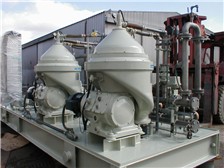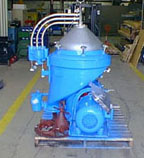Aug 18 2010 - This post is part of our forum on Jeffrey Goldberg's September cover story detailing the prospects and implications of an Israeli strike against Iran. Follow the debate here.
Of all the questions one might ask about bombing Iranian nuclear facilities, the most basic is perhaps the most difficult: whether it would work -- that is, whether it would significantly impede the Islamic Republic's nuclear progress, particularly if carried out by Israel.
What would such bombing destroy? Probably the gas centrifuges that Iran has used to enrich uranium at its plant at Natanz; probably the plant at Isfahan that produces the uranium feed for the centrifuges; probably the heavy-water reactor at Arak and its associated heavy-water production plant; and maybe even the Russian-built power reactor at Bushehr, if Israel decides to risk killing some Russian workers.
What would bombing not destroy? Probably not Iran's stockpile of low-enriched uranium, which is easily moved and sufficient to fuel two nuclear warheads, if further enriched; probably not the unknown number of centrifuges that Iran has produced but not deployed at Natanz; probably not the many tons of centrifuge feed that Iran has produced and stockpiled; probably not the factories that Iran is using to make more centrifuges; and certainly not the knowledge needed to enrich uranium and incorporate it into a nuclear warhead. All these essentials of nuclear-weapon breakout capability seem likely to remain.
Would it be possible to find out, after the bombing, what was really hit? The answer is no -- not unless Iran were invaded. Short of which, after exhibiting the inevitable civilian casualties, Iran would likely slam the door on UN inspectors and take its nuclear work underground. Popular nationalist pride will only enable this reaction, if not push hard for it. Iran could claim, with justification, that the data on its nuclear sites gathered by the present UN inspection teams has simply made it easier to target these sites. Why should Iran provide more targeting data by allowing more inspections? Even the limited knowledge we now have about Iran's nuclear status could disappear -- a casualty of military action.
We would, however, know one important thing after any bombing attack: how Iran reacts. If Iran truly values its nuclear program, it would play the victim. The attack would give Iran a claim on the sympathy of countries that might otherwise be inclined to shun it, thereby invigorating its campaign to thwart U.S. and Western isolation efforts. But to remain the victim, it would have not to victimize others. Successful victimhood would therefore mean few or no Iranian-sponsored terror attacks against U.S. targets. It would also mean only limited terror attacks against Israel. If victimhood works, and Iran escapes isolation, its current rulers will have fended off one of the main threats to the regime anywhere on the horizon. That benefit would seem to outweigh whatever harm Israeli bombs could do to the nuclear program.
Israel's leadership has no-doubt considered this, and may well have concluded that Israel cannot stop the Iranian bomb by itself. Israel can't destroy enough of Iran's nuclear capability through air strikes, nor can Israel invade. Only the United States can do those things. Whether it might ever do either is the big question, and one to which absolutely no one has the answer.
source: www.theatlantic.com












